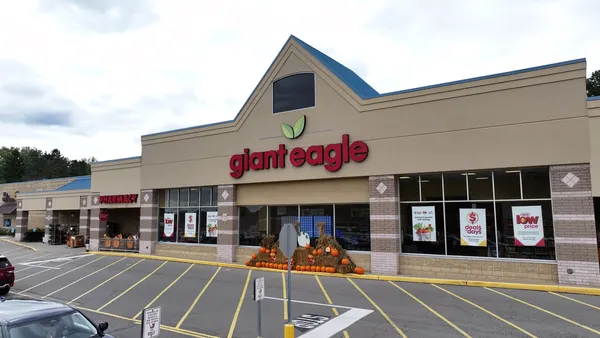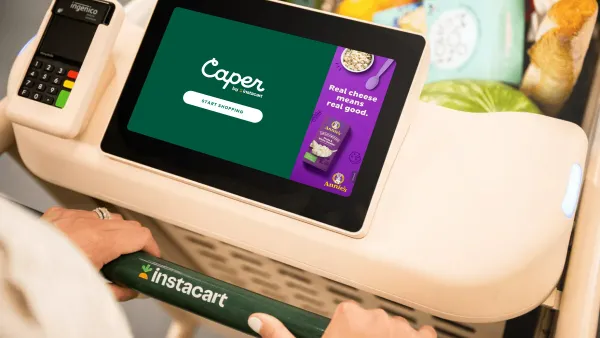Last week, Hy-Vee unveiled a health and wellness subscription program that includes personalized nutrition counseling, preventative health screenings, fitness videos, virtual classes and more — taking a major step in advancing its existing health and nutrition efforts.
The news came just a few weeks after Amazon completed buying primary care organization One Medical, with which it has rolled out a healthcare membership that includes virtual care and in-app prescription requests and renewals, among other offerings.
As other retailers and grocers, like Walmart, Kroger and Heinen’s, move further into the health and wellness space, sources said it’s only a matter of time until more retailers closely link their grocery and pharmacy options with food-as-medicine, preventative care and wellness services through memberships.
Subscriptions can be an especially good match for grocers given their existing experience in the food and pharmacy, large customer reach and often loyal shoppers base, sources noted.
“Consumers feel that the supermarket is the perfect place to do this” membership offering, Phil Lempert, founder and editor of SupermarketGuru, said, noting that many grocers already have offered health services for years, such as vaccinations and blood pressure screenings, that customers know about.
Retailers, and grocers especially, are facing increasing pressure with their core businesses, which is prompting them to seek out additional revenue and profit, GlobalData Retail Managing Director Neil Saunders wrote in an email.
“Healthcare and wellness are very lucrative sectors which is why retailers are interested,” Saunders said, adding that healthcare’s lack of consumer friendliness makes it a space ripe for disruption.
Since the pandemic began more than three years ago, more consumers have grown concerned about their health, while the White House has extensive health and nutrition work underway and food companies are reformulating their products to make them better for consumers, Lempert said.
Six in 10 people in the U.S. have a chronic condition, while four in 10 have more than one, per the Centers for Disease Control and Prevention.
“With the obesity rates, with the diabetes rates and so on, we need this to happen,” Lempert said.
What to consider with offering a membership
Having a team of registered dietitians already in place, like Hy-Vee, creates a solid foundation from which to build out a membership, Lempert said.
“You can't just throw a light switch and say, ‘Okay, man, we're gonna do this.’ And without that personal consultation, I don't think it's nearly as effective just doing a bunch of videos and doing it [with] more self-learning,” Lempert said.
Smaller grocers that don’t have in-store clinics and dietitians could face more barriers to standing up a health membership, said Gary Hawkins, CEO of the Center for Advancing Retail & Technology.
While Hy-Vee’s and Amazon’s memberships can give grocers an idea of what kinds of services to include in a health subscription, sources noted a few other ideas for additions. Lempert said discounts on certain items, like grocery products, could be worth adding.
Hawkins said Hy-Vee missed an opportunity to include its pharmacy benefits in its subscription: “I’m a little surprised they didn’t tie any of the benefits to the pharmacy via reduced prices on relevant medications. But they are doing the two free health screenings per year and that does involve pharmacy."

Lempert believes the ability to have two appointments per month with a Hy-Vee dietitian will drive consumers to change their behaviors and stay engaged with the offering. Human contact and personalized experiences — like the approach taken by WW, formerly known as Weight Watchers — are key ingredients to changing behaviors, he said, adding that grocers should seek out opportunities to tailor health and wellness memberships to individuals, as well as offer services in-person to foster connection.
“The program has to have substance. ... You really have to have seasoned professionals who know how to communicate,” Lempert said.
From a liability standpoint, grocers need to make sure they are employing registered dietitians instead of nutritionists who aren’t credentialed, he added.
Despite their timeliness and mounting consumer interest, health and wellness memberships could get undercut by their price tags. Hy-Vee's Healthy You is $99 per month, while Amazon’s One Medical is $199 annually, although the retailer is currently offering the first year of membership for $144.
Hawkins said that the price for the membership is “reasonable” given the services provided, such as twice monthly meetings with dietitians, wellness classes and the dietitian private chat portal, and the personalized offerings.
Saunders said that consumers may find a $99 monthly charge “a bit too much to commit to” but noted that the ability to pay for Healthy You with a health savings account may make the membership more appealing.
Grocers will also need to consider what the value proposition is for a membership versus having a la carte options, Saunders said, noting many consumers “suffer from subscription fatigue.”
Lempert said he wouldn't be surprised if Hy-Vee and other retailers push for insurance companies to partially cover the costs associated with health and wellness subscription programs. Because grocers already work with health plans on the pharmacy side of their operations, Lempert said it would be a “short reach” for them to try to extend this to a health-focused membership program.
“It’s about prevention, and all the disease states health care providers have to deal with and health plans have to pay for it. If we can reach out in front and have more preventive behaviors taking place ... the health plan is going to pay out less,” Lempert.
Grocers may also want to think about imposing a minimum commitment to join to boost engagement. Hy-Vee’s three-month minimum for its Healthy You membership is a “smart” move, Hawkins said, because it ensures that people who sign up for the program are committed, and builds in enough time for the program’s benefits to begin taking effect.
He continued: “I’d be willing to bet that Hy-Vee will win tremendous loyalty from those shoppers that sign on, use the program services, follow the guidance, and begin feeling better.”
Lempert could see grocers who focus on a “commitment to their shoppers” like H-E-B, ShopRite, Coborn’s, Stop & Shop, Wegmans and Giant Food roll out a health membership.
“Kroger and Walmart are aggressively going after pharmacy and clinics in the store so I would expect we’ll see something there soon,” Hawkins said.
Some grocers may also be faced with the challenge of how to encourage shoppers to think of stores as health and wellness destinations, Hawkins said.
“I don’t think this about monetizing the health & wellness [and] food-as-medicine trend. ... In a sense, it’s the ultimate loyalty play. If the retailer can help improve that shopper’s health, life, and wellbeing they probably have a shopper for life,” Hawkins said.












